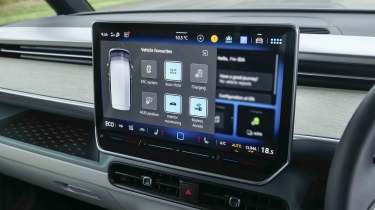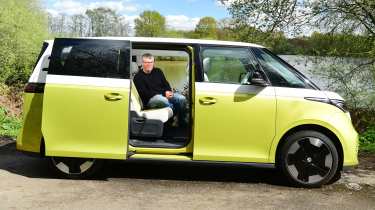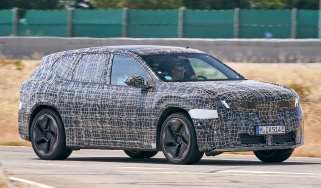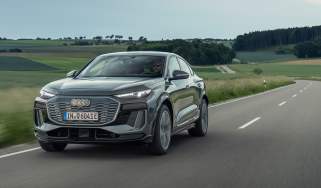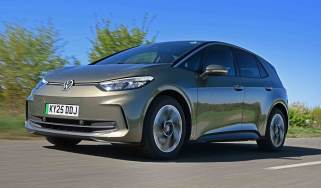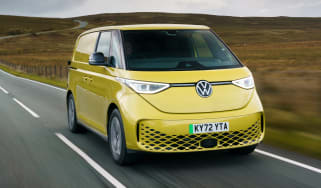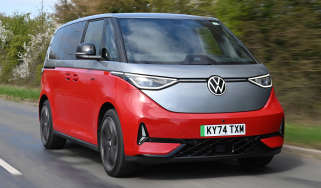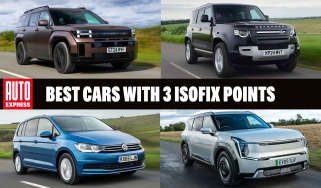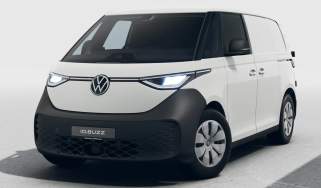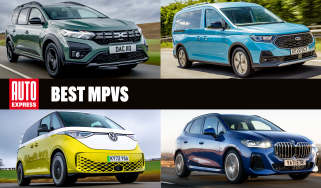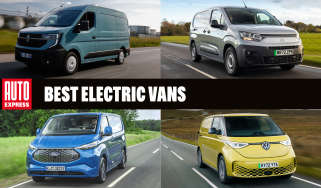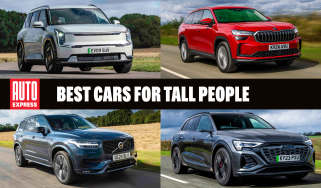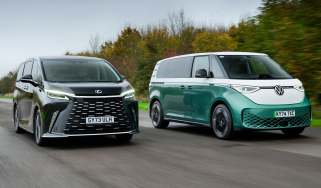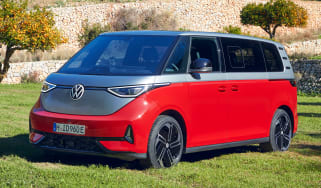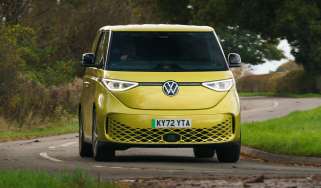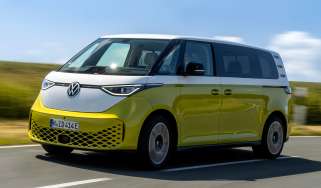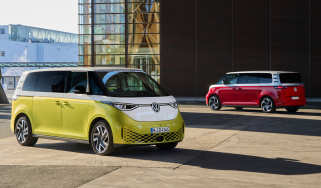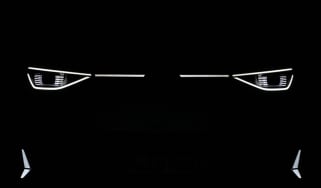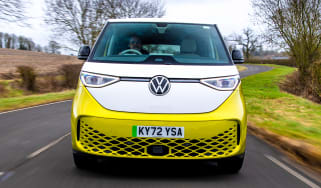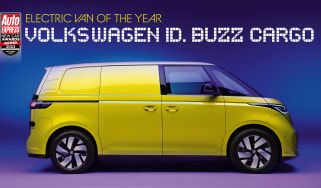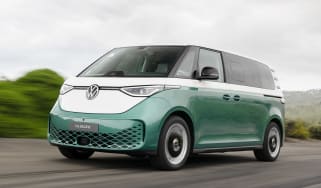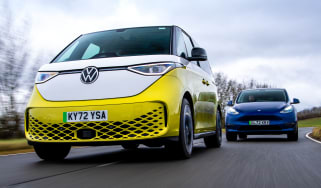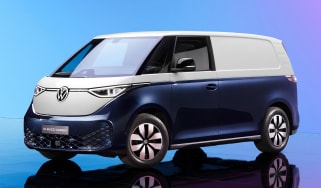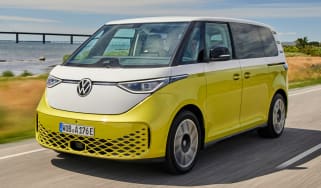Volkswagen ID. Buzz review
The ID. Buzz combines retro charm with genuine family-friendly usability

Is the Volkswagen ID. Buzz a good car?
There’s substance to go with the obvious style of the Volkswagen ID. Buzz. It’s a practical electric family MPV that just so happens to emulate the original Type 2 microbus in terms of looks, while its large dimensions mean there’s lots of room inside, especially in long-wheelbase form. If you can stomach the high asking price, then it’s a characterful family car that will have buyers thinking twice about choosing an SUV to fit the same brief. We’d even go so far as to say that the VW ID. Buzz is the best model currently available in Volkswagen’s electric car line-up.
| Key specs | |
| Fuel type | Electric |
| Body styles | Five-door, five-seat MPV Five-door, six-seat MPV Five-door, seven-seat MPV |
| Powertrains | 79kWh battery, single electric motor, rear-wheel drive 86kWh battery, single electric motor, rear-wheel drive 79kWh battery, twin electric motors, four-wheel drive 86kWh battery, twin electric motors, four-wheel drive |
| Safety | Five stars (Euro NCAP, 2022) |
| Warranty | Three years/60,000 miles |
How much does the Volkswagen ID. Buzz cost?
With prices starting from £59,000, the Volkswagen ID. Buzz is one of the priciest cars that VW sells - only the Touareg SUV and Multivan people carrier are more expensive. This gets you behind the wheel of a five-seat model in Life trim, while upgrading to six seats adds around £200 to the price. The seven-seat model is based on a longer-wheelbase body, although a price rise of around £360 is quite reasonable considering the extra versatility that the LWB version offers – we think it’s worth the extra outlay.
The jump in price from Life trim to the mid-range Style model is around £5,000, which brings with it luxuries such as matrix LED headlights, bigger wheels, three-zone climate control, electric rear windows, tinted rear windows and a Harman Kardon sound system, but we don’t think you’d feel short-changed with Life spec.
Used - available now

2021 Land Rover
Range Rover Evoque
35,000 milesAutomaticPetrol2.0L
Cash £27,990
2023 Ford
Fiesta
48,296 milesManualPetrol1.0L
Cash £11,423
2025 BMW
i4
38,751 milesAutomaticElectric
Cash £28,646
2023 Hyundai
i30 N
39,939 milesAutomaticPetrol2.0L
Cash £24,752At the top of the range, the GTX is another £3,600 more than Style, and features more power thanks to a twin electric motor set-up that adds four-wheel drive, even larger wheels, electric front seats with massage, four heated seats and panoramic glass, plus a sportier look and suspension set-up. However, thanks to its extra power, the GTX has a shorter range than the other models in the ID. Buzz line-up.
There is a choice of 79kWh and 86kWh batteries, while rear or four-wheel drive are available, with the latter exclusively for the top-spec GTX. Maximum range – a claimed 293 miles – is achieved by the single-motor Life model with the 86kWh battery, but even the most powerful GTX with the smaller battery has a claimed range of more than 250 miles on a full charge.
Electric motors, performance & drive
The Volkswagen ID. Buzz range has expanded beyond the launch line-up, with the Life and Style trims now joined by a sportier GTX variant, which arrived at the same time as the LWB model. All three trim levels are available in standard and long-wheelbase guises. Whichever you choose, power is the same, with a single 282bhp rear-mounted electric motor for the Life and Style models, while the GTX adds a second electric motor for a total of 335bhp and four-wheel drive.
A 79kWh battery is fitted to the standard ID. Buzz, which is located low in the chassis between the axles. Thanks to an extra 250mm of distance between the front and rear wheels, there’s space for a larger battery in the LWB model. Capacity is increased to 86kWh, and according to the official figures, the larger version can go slightly further on a charge.
| Model | Power | 0-62mph | Top speed |
| ID. Buzz 79kWh SWB | 282bhp | 7.6 seconds | 99mph |
| ID. Buzz 79kWh GTX SWB | 335bhp | 6.1 seconds | 99mph |
| ID. Buzz 86kWh LWB | 282bhp | 7.9 seconds | 99mph |
| ID. Buzz 86kWh GTX LWB | 335bhp | 6.4 seconds | 99mph |
What is the Volkswagen ID. Buzz like to drive?
It’s a big car, but the electric powertrain means the ID. Buzz feels sprightly. The chassis is set up for comfort ahead of sporty driving. At launch, there was a 201bhp electric motor driving the rear wheels and a 77kWh battery, but now, if you order the standard-wheelbase model, you get an enlarged 79kWh battery in SWB form, and a 282bhp electric motor.
In town
At nearly two metres wide, the ID. Buzz isn’t the easiest car to position on narrow urban streets, and width restrictions could be a challenge. But there are parking sensors all round, including side monitors that can detect obstacles such as bollards next to the car that might be beyond the view of the door mirrors – unlike some van-based MPVs, the ID. Buzz doesn’t have wide-angle lower mirrors for extra visibility.
The high-set driving position and huge glass area allow a clear view of your surroundings, although the stubby bonnet means it’s best to assume that the front of the car is where the windscreen ends. Light steering and a decent turning circle for such a large car improve manoeuvrability. There’s strong response from the powertrain, even from a standstill, so keeping pace with traffic is a breeze.
On A- and B-roads
Getting up to higher speeds is also straightforward, thanks to the 560Nm of torque that’s on offer as soon as you hit the accelerator. The chassis is designed for comfort and to manage the car’s hefty kerbweight, though, so while acceleration is sporty, that’s where the racy edge ends; there’s plenty of body lean in corners, which is amplified by the high seating position. The suspension strikes a good balance between comfort and control, though, and grip is good.
Bumps are soaked up easily, but bigger potholes can cause the whole body to shudder, while fitting larger alloy wheels doesn’t have much of an impact on ride quality.
On the motorway
That smooth nose helps the ID. Buzz cut through the air, but while wind noise isn’t an issue overall, the lack of an engine note means it’s more noticeable at motorway speeds, as is tyre roar. The ride is at its best at higher speeds, which further enhances the ID. Buzz’s refinement. Strong crosswinds will tug at the car’s slab sides, but the VW still feels stable and reassuring.
0-62mph acceleration and top speed
There’s a 0-62mph time of 7.6 seconds for the standard ID. Buzz, while the four-wheel-drive GTX manages the sprint in 6.1 seconds. The larger and heavier LWB model is slightly slower, adding 0.3 seconds to the times for each version (7.9 seconds and 6.4 seconds respectively). All versions of the ID. Buzz have a top speed limited to 99mph to help save battery range.
Range, charging & running costs
The Volkswagen ID. Buzz isn’t cheap, with prices starting at just under £60,000, but upgrading to LWB guise doesn’t cost a huge amount extra. There’s a modest premium of around £500 to pay for the longer version, while turning the five-seat model into a six-seater (or speccing the seven-seat LWB model with six seats) will cost you around £200.
Electric range, battery life and charge time
Surprisingly, the best performing model in the ID. Buzz line-up in terms of range is the long-wheelbase model in entry-level Life trim. Official figures state that it can travel up to 293 miles on a full charge, which is 10 miles further than the equivalent model in standard-wheelbase guise.
Larger wheels trim seven miles from the official range of the Style LWB, at 286 miles, while the standard-length version has a maximum range of 277 miles. As is often the case with the highest-spec EVs in a line-up, the most powerful, four-wheel-drive GTX has the shortest range, covering 282 miles in LWB guise, or 255 miles in its standard form.
But efficiency isn’t a strong point, because when you compare the ID. Buzz with the ID.7, a car that uses similar battery sizes, the latter adds at least 100 miles to these figures.
We’ve only seen 3.0 miles per kWh from our own long-term ID. Buzz five-seater, while the heavier LWB model returned 2.9mi/kWh during our time with it. That relatively poor figure can be partly put down to cold weather, but this is still one of the less efficient EVs on the market. And despite the car’s high cost, a heat pump is only available as an option that adds around £1,000 to the asking price.
Charging speeds of up to 200kW are available, while a 170kW DC source will get the Volkswagen’s battery from 5-80 per cent capacity in half an hour. You can expect a full charge to take nine hours from an 11kW three-phase AC supply.
| Model | Battery size | Range | Insurance group |
| ID. Buzz 79kWh SWB | 79kWh | 283 miles | 37 |
| ID. Buzz 79kWh GTX SWB | 79kWh | 255 miles | 42 |
| ID. Buzz 86kWh LWB | 86kWh | 293 miles | 37 |
| ID. Buzz 86kWh GTX LWB | 86kWh | 282 miles | 42 |
Tax
Company car buyers will see annual outgoings of £475 at the 40 per cent rate if they choose an ID. Buzz for the 2024/25 tax year, with its high list price accounting for relatively steep rates for an EV. At least the car is still currently exempt from road tax (VED).
Insurance
Group ratings for the ID. Buzz range from 37-42, with the more powerful GTX version laying claim to the highest category.
Depreciation
One area where the ID. Buzz has consistently performed well is for residual values. It’s not quite at the peak of its desirability, as it was when first launched, but with figures in the 56-58 per cent range, it’s the best performer in the VW line-up, and one of the strongest mainstream models from any area of the market. The LWB version performs as well as the standard car, while the top-spec GTX is the best model of the whole range, at just under 58 per cent in LWB guise.
To get an accurate valuation of a specific model, check out our free car valuation tool...
Interior, design & technology
Retro looks and an interesting cabin layout help to lift the Volkswagen ID. Buzz above other models in brand’s electric vehicle line-up.
The Volkswagen ID. Buzz shares some design cues with the rest of VW’s ID electric car range, namely its slender headlights and perforated front bumper, but the large VW badge front and V-shaped bonnet hark back to the iconic Type 2 microbus. The raked windscreen and wipers that neatly tuck down below the bonnet line boost the car's aerodynamics. The sliding side doors feature discreet rails into the sides of the body, while at the back, the vertical rear end design is similar to that of the larger Volkswagen Multivan.
There are single body colours as standard, while the two-tone paint option combines a Candy White roof and bonnet with either Lime Yellow, Starlight Blue, Energetic Orange or Bay Leaf Green for the rest of the bodywork. They certainly emphasise the ID. Buzz’s hippy van heritage, but they also add more than £2,500 to the price tag.
Life trim comes with 19-inch alloy wheels, while the Style version comes with 20-inch wheels as standard and 21-inch wheels as an option. The latter boosts the ID. Buzz's concept car looks, and in our opinion, doesn't spoil the car's ride too much, either. The four-wheel drive GTX model comes with 21-inch alloy wheels as standard.
What is the Volkswagen ID. Buzz like inside?
The retro exterior looks will turn heads wherever you go, while the interior offers some of the same appeal, and is mixed with VW’s cutting-edge technology. There’s a large touchscreen menu up front, a small digital instrument cluster mounted on the steering column (so it moves with the wheel when you adjust it) and plenty of storage everywhere, while the pale plastics help with the feeling of spaciousness in the cabin.
What is the interior quality like?
The plastics used in the interior are on the hard side – highlighting the ID. Buzz’s van-derived roots – but there are rubber inserts where you need them that boost the feeling of high quality in the cabin.
As with the plastics, the fabric upholstery has a light finish, although there are also dark colours available if you��re concerned about the pale materials showing up dirt. Leather trim isn’t available, with VW opting for eco-focused recycled materials instead.
Sat-nav, stereo and infotainment
VW’s Discover Pro system includes a 12.9-inch touchscreen that has plenty of features, while 10-colour ambient lighting is fitted as standard. This can be upgraded to a 30-colour system with one of the car’s option packs, which also adds matrix LED headlights (standard on Style models and above) and a panoramic roof with an electrochromatic sun shade - the latter is standard on GTX models.
Recent updates to VW’s multimedia system mean the temperature and volume sliders in the ID. Buzz are now illuminated, so they’re easier to use at night, but still trickier to operate than physical controls.
The big screen has shortcuts at the top and bottom, with an unmarked home button to get you back to the main screen if you need it. The display itself is sharp, although the mapping isn’t the most intuitive system to use. Wireless Apple CarPlay and Android Auto are standard, though, and are displayed large on the screen.
Reliability & safety
Safety kit is first-rate on the Volkswagen ID. Buzz. There are seven airbags (front, side, curtain and central), and autonomous emergency braking with pedestrian and cyclist detection is standard. Adaptive cruise control with speed limiter is also included, as is lane assist, road-sign recognition and a seatbelt alert for every position. Updates for 2024 saw blind-spot monitoring added as standard, rather than being part of the pricey Assistance Package Plus option, because Euro NCAP now tests for a warning system to ensure you don’t open a car door into the path of a cyclist or vehicle approaching from behind.
In the LWB model there are four sets of Isofix child seat attachments in the back – two for each row – while the middle row slides forward to give plenty of room to get a child seat inside. Euro NCAP gave the ID. Buzz an 87 per cent score for child occupant protection in tests in 2022, when it earned a five-star overall rating.
Volkswagen as a brand has been dropping quickly down our Driver Power rankings, from 18th out of 29 manufacturers in 2022, to 27th (out of 32) in our best car manufacturer rankings in 2023, and 29th in the most recent 2024 poll. One glimmer of hope for ID. Buzz buyers is that the model is sold via VW Commercial Vehicle centres, although a lot of these share sites with the passenger car showrooms.
| Key standard safety features | Euro NCAP safety ratings |
|
|
Warranty
A three-year warranty is standard fare from Volkswagen, although there’s a 100,000-mile limit, which is 40,000 miles longer than for the brand’s petrol models. Roadside assistance is offered for the same period.
Servicing
Adding to the ID. Buzz’s low running costs is a complimentary service plan that covers the car’s first three inspections and its first MoT. While EVs have lower maintenance costs than combustion-engined cars, this offer will still give added peace of mind.
Volkswagen ID. Buzz Style long-term review
Auto Express Editor Paul Barker is in charge of our funky long-term Volkswagen ID. Buzz. He’s been enjoying its company on bank holiday journeys, taking shelter under the enormous tailgate during a sudden downpour, and revelling in the vast boot that can hold all manner of football kit, scooters, and bodyboards that the family uses on trips away.
While it has been garnering a lot of attention, family and friends have remarked as to why such a large car only has five seats, to which Paul has had to explain that a seven-seater is on the way. You can read the full long term test here...
Volkswagen ID. Buzz alternatives
High prices pitch the VW ID. Buzz above equivalent electric van-based MPV rivals to the tune of at least £20,000. The main opponents are a range of closely related models in the shape of the Vauxhall Vivaro Life Electric, Citroen e-SpaceTourer, Peugeot e-Traveller and Toyota Proace Verso. While these models all benefited from a facelift at the end of 2024, none are as stylish as the ID. Buzz, and they can’t match it for range, either.
From the perspective of a desirable and upmarket family car, the ID. Buzz can be ranked against similarly priced electric SUVs, including the BMW iX3, Volvo XC40 Recharge, Ford Mustang Mach-E and Tesla Model Y. However, the ID. Buzz is more practical than any of these, thanks to its flat-folding seats and vast cargo area, while the LWB version adds seven seat without compromising versatility. None of these alternatives can turn quite as many heads as the ID. Buzz, either, and for some that will be enough to justify its entry price.
Frequently Asked Questions
While the ID. Buzz is sold via the Volkswagen Commercial Vehicles network, its warranty coverage matches that of VW’s passenger car line-up. That means there’s a three-year/60,000-mile warranty, while roadside assistance is offered for the same period – buy a combustion-engined VW other than a Touareg, and you only get 12 months of cover.

